
views
X
Trustworthy Source
Consumer Reports
Nonprofit organization dedicated to consumer advocacy and product testing
Go to source
Consulting a Consumer Attorney

Build a record of the dispute. If you've decided you want to pursue legal action, you typically want to hire an attorney. That attorney will need as much information as possible about your dispute so they can properly evaluate your case. Make copies of all documents you have related to your dispute. Keep the originals in a safe place (the attorney may need them later). If you have documents that aren't dated, try to figure out at least an approximate date for them. Put them in order to create a chronological record of your dispute.
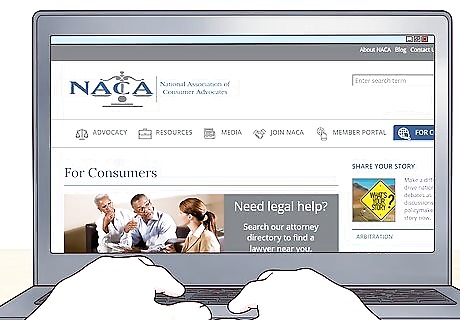
Search the directory of the National Association for Consumer Advocates (NACA). More than 1500 licensed attorneys are members of the NACA. These attorneys all specialize in consumer rights. They represent people who were treated unfairly by businesses, including banks and other financial institutions. From the NACA's website at https://www.consumeradvocates.org/for-consumers, click the link to access the directory. You can choose an area of practice and your state from drop-down menus to narrow your search results. Write down the names of a few attorneys from your results. Go to their websites to learn more about the work that they do.
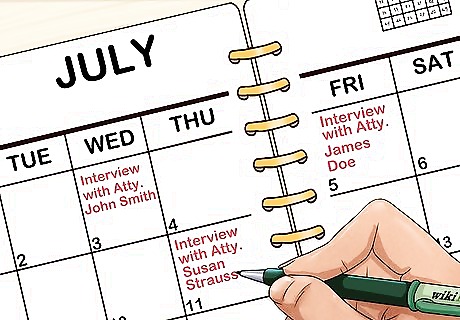
Schedule interviews with 2 or 3 attorneys. If you decide to hire an attorney, you want to make sure you've chosen the best one for your case. You also want to get several opinions on your chances of success at trial. Most consumer law attorneys provide free initial consultations, although some will charge a small fee. When you schedule your initial consultation, find out if there's a form you need to fill out beforehand, or if you need to submit any of your documents for the attorney to review ahead of time.

Discuss your dispute in detail. Present to each attorney an organized, chronological account of the events leading up to the dispute, as well as everything that's happened since. Stick to the facts, and avoid talking about how something made you feel unless the attorney specifically asks you. The attorney may ask questions to which you don't know the answer. Write them down so that you can find the answer later, and tell the attorney you'll get back to them with the answer. If the attorney asks you for documents that you don't have available, make a note so you can get them as soon as possible after your meeting.

Evaluate your options. The attorneys you interview will give you their analysis of your case and your chances of success in court. Typically they'll lay out several possible paths for you to choose between. If you decide to hire an attorney, get a written statement of the costs and fees you will pay, and when they'll be due. In some situations, such as if your dispute concerns a relatively small amount of money, an attorney may decline to take your case. If that happens, the attorney may tell you about other options available to you, such as filing a regulatory complaint or suing the bank in small claims court.
Participating in Arbitration

Read any contracts or letters from the bank carefully. If you have an account with the bank, you'll have a contract that you received when you opened the account. This contract will tell you the procedures you must follow when you have a dispute with the bank. Even if you don't have an account with the bank, all banks have a statement of terms and conditions that cover any application or transaction made at that bank. You can usually get a copy of this document from the bank's website, or by asking for one at a branch. Most of these contracts have mandatory arbitration clauses. This means that in most instances, you won't be able to sue the bank. If you file a lawsuit, the judge will merely dismiss your lawsuit and tell you that you have to submit your dispute to arbitration. There are some situations, however, where you still may be able to file a lawsuit, such as if you believe the bank discriminated against you.

File your arbitration claim. Your contract specifies which arbitration authority is responsible for conducting the arbitration, and typically has an address or other contact information for the arbitrators. Each arbitrator has their own procedures, but usually you must first file a claim to submit your dispute to arbitration. Your claim will be forwarded to the bank, which will have a limited period of time to respond in writing. The bank's response will be filed with the arbitrators, and a copy will be sent to you.

Attend pre-hearing conferences. Once the bank has filed a response, you may have a number of conferences to select an arbitration panel and resolve issues related to scheduling, evidence, and other technicalities. If you've decided to hire a lawyer, they will attend these pre-hearing conferences. You won't be expected to attend many of them as long as your lawyer is present, particularly if they deal with procedural matters.
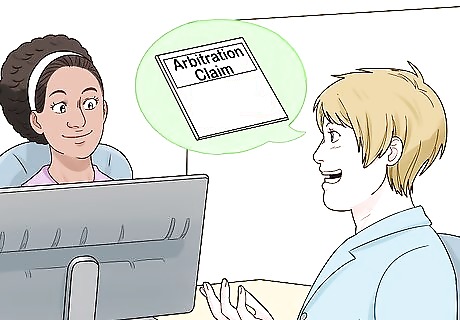
Exchange documents through discovery. Arbitration has a discovery process similar to a regular court, although the rules are typically less formal. Depending on the complexity of your claim, discovery may be a rather lengthy process. In addition to exchanging documents, you may also have formal interviews with bank employees or others involved in your dispute. The bank's lawyers may also want to interview you.

Attend your hearing. Once discovery is complete, you and the bank's representatives will appear before the panel of arbitrators to present your arguments and evidence. An arbitration hearing is relatively formal, but the rules are typically a little more relaxed than court rules. Since you filed the initial claim, you (or your attorney) typically will present your arguments and evidence first. You may call witnesses or introduce documents that support your claim. After you conclude, the bank's lawyers will present their arguments and evidence as to why you shouldn't succeed in your claim. You may be called on to testify. The arbitrators will make a decision based on their understanding of the dispute, the evidence and arguments presented, and any laws or regulations that apply. The arbitration decision is typically final, meaning if they don't decide in your favor you cannot appeal.
Suing in Small Claims Court

Consult an attorney or small claims adviser. You don't need an attorney to file a case in small claims court. However, you may want to talk to an attorney or adviser before you file your lawsuit to make sure you're filing in the right court. Some courts, such as those in California, have self-help centers or small claims advisers who will help you free of charge. Contact the court in your area to find out what resources are available. If you previously interviewed attorneys for help with your case, they may be willing to give you advice or assistance on suing in small claims court.

Send a demand letter to the bank. Many small claims courts require you to make an effort to resolve your dispute before you file a lawsuit in court. A demand letter is a formal business letter that sets forth the facts of your dispute and what you want the bank to do to resolve the situation. Make a copy of your signed letter before you send it. Then mail your letter using certified mail with return receipt requested. You can use the receipt as proof that the bank received your letter. The court may not hear your claim unless you provide proof that you attempted to resolve the dispute on your own and were unsuccessful. A copy of your written demand letter along with your postal receipt meets that requirement.
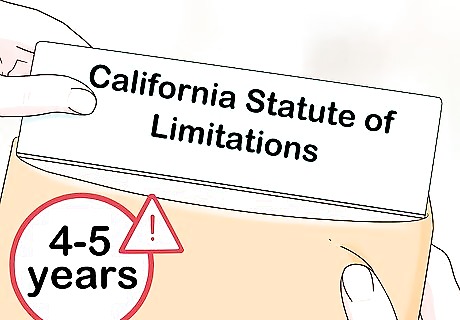
Check your state's statute of limitations. The statute of limitations is a deadline for filing a lawsuit. If your dispute is too old, you won't be able to sue the bank. Since most bank disputes involve written contracts, look for the statute of limitations for written contracts. It's typically 4 or 5 years. You may be suing the bank for some reason unrelated to your account. For example, you may want to sue the bank because you slipped and fell in the lobby. In that case, you would be looking for the personal injury statute of limitations, which is usually much shorter than the statute of limitations for written contracts (sometimes a year or less).

Get claim forms from the court you want to use. The small claims court has forms you must fill out to have your case heard in court. Look over the forms before you start filling them out so you know what information you'll need. Then you can gather any necessary documents. You can get the forms you need from the clerk's office in the court house. Many courts also have the forms available for download on their website. The court also typically has an instruction guide that tells you how to complete and file your forms. Pick one up and read it carefully.
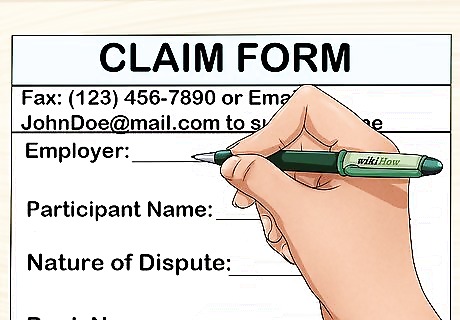
Complete your claim forms. Provide information about yourself, the bank, and the nature of your dispute. You may attach documents to your claim form as evidence of the dispute and your claim against the bank. The court may require you to attach certain documents, such as a copy of your demand letter. Any required documents will be listed on the claim form.

File your claim forms with the clerk of court. Once you've completed your claim forms, make 2 copies of them and take your originals and copies to the clerk's office. The clerk will file-stamp your forms and set a date for the court hearing. You'll have to pay filing fees when you file your claim. The amount varies widely among courts, but is typically less than $100. If you can't afford to pay the fee, ask the clerk if it's possible to get a waiver. The clerk may allow you to choose a hearing date. If you choose your own hearing date, allow enough time to get a copy of the claim forms to the bank before the hearing.
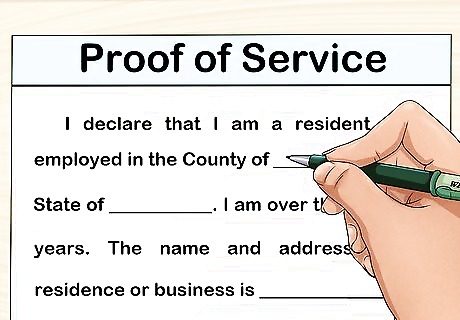
Have the bank served. Service of process is required by court rules to notify the bank of your lawsuit. If you don't follow these rules, your claim may be dismissed. Typically, you'll hire a sheriff's deputy to deliver the claim forms to the bank. When the claim forms are delivered, you must complete a proof of service form. Some courts require you to file this form with the clerk in advance. In other courts, you simply bring it with you to your hearing. If you use a sheriff's deputy or a private process serving company to deliver your forms, you'll have to pay a small fee (typically less than $20).
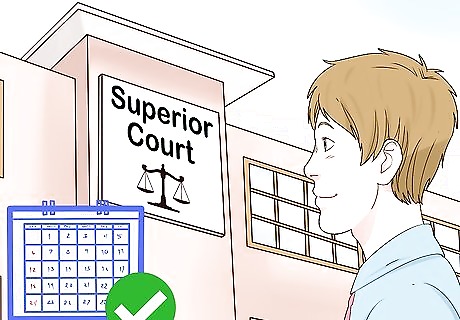
Go to court on the date of your hearing. Arrive at the courthouse at least a half hour before the time of your hearing. You need time to go through security and find the right courtroom. Take a seat in the gallery and wait for your case to be called. While you don't necessarily need to wear a business suit, you should wear conservative clothing that is clean and neat. If possible, leave all electronic devices at home. If you have to bring something with you, such as your mobile phone, silence the ringer before you enter the courtroom.

Participate in your hearing. When the court officer calls your case, move to the front of the courtroom. Since you filed the claim, you will be the first to speak to the judge. Stick to the facts, and tell the judge your story. It can help to take notes or create a script to read, so your presentation will be logical and focused. Speak in a loud, clear voice so you can be heard and understood throughout the courtroom. The judge may ask you questions. If the judge interrupts you, stop speaking and answer the judge's question before you proceed. Always treat the judge with courtesy and respect, addressing them as "your honor." Using "sir" or "ma'am" is also appropriate.
Reporting to the Government

Gather documentation of the dispute. When you file a complaint with any government agency, you must provide information about yourself and the bank, as well as documents related to the dispute. Make copies of all documents rather than sending originals. You will need to provide the full name and location of the bank, as well as the names of anyone at the bank you spoke to regarding the dispute. It may be helpful to create a timeline of the dispute, from the events that led to the problem through all efforts you made to resolve the problem with the bank.

Identify the appropriate federal regulatory agency. The Federal Financial Institutions Examination Council (FFIEC) has a Consumer Help Center you can use to find out which federal regulatory agency can best help you. To access the Consumer Help Center, visit https://www.ffiec.gov/consumercenter/default.aspx and enter the name of the bank. You can find the name of the bank on your account statement.
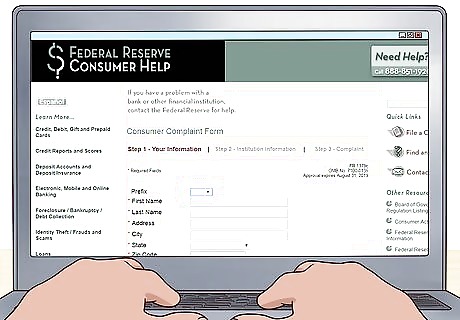
File a complaint with the Federal Reserve if you can't find the appropriate regulator. The Federal Reserve regulates all banks in the US. The Federal Reserve will investigate any complaint you file and send you a letter detailing the findings of the investigation, typically within 30 to 60 days. You can access the Federal Reserve's online complaint form at https://forms.federalreserveconsumerhelp.gov/secure/complaint/formComplaint.html. You can also download a PDF version of the form to fill out and fax or mail to the appropriate Reserve Bank. The Federal Reserve doesn't have the authority to address all issues. If another regulatory agency would be more appropriate to handle your complaint, the Federal Reserve will forward your complaint and let you know.
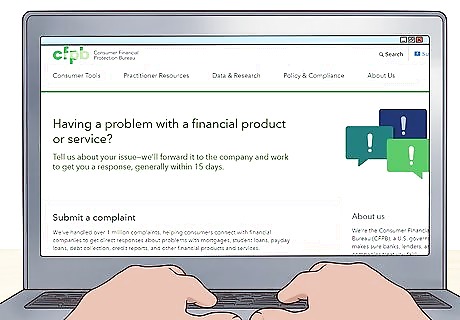
Submit a complaint to the Consumer Financial Protection Bureau (CFPB). The CFPB resolves issues consumers have with financial institutions, including banks and credit card companies. Once you submit your complaint, the bank will respond, typically within a couple of weeks. To get started, go to https://www.consumerfinance.gov/complaint/ and click the "Start a new complaint" button. Follow the instructions to continue. You must provide a valid email address to receive notifications when the company has responded to your complaint.

Get state officials and regulators involved. Your State Attorney General's office typically has a consumer protection department that takes complaints from consumers about businesses, including financial institutions. States also have regulatory agencies that regulate banks operating in that state. Search online for "bank regulator" with the name of your state to get links to the web pages of state agencies that may be able to take your complaint. You may also want to file additional complaints with nonprofit agencies, such as the Better Business Bureau. Posting details about your dispute on review websites and on social media may also help you get results from the bank.


















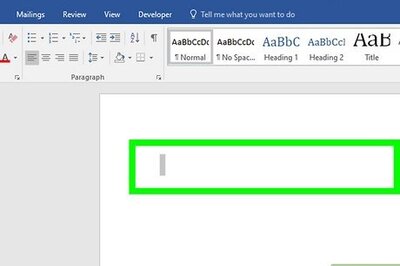
Comments
0 comment